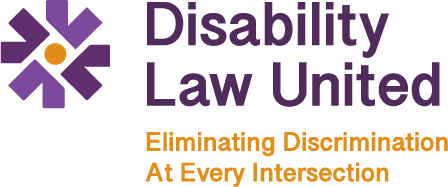(June 5, 2018) The Portland Bureau of Transportation announced a major milestone in the City’s efforts to make Portland’s streets and sidewalks more accessible to people with mobility disabilities.
Yesterday, United States District Court Judge Marco Hernandez issued a preliminary approval of the settlement in Hines, et al. v. City of Portland. The class action seeks to ensure that the City’s corners are ADA compliant.
The City of Portland has over 38,000 corners. Approximately 11,000 corners do not have curb ramps. Many other corners have ramps that do not meet current ADA standards. Corners that do not have ADA compliant curb ramps represent a significant barrier to safe and convenient mobility for people with mobility disabilities.
This landmark settlement will take a major step forward in correcting this situation. According to the settlement’s terms, the City of Portland has agreed to construct and/or upgrade 1500 curb ramps per year for the next twelve years for a total of 18,000 ramps. The City has also agreed to survey all ramps in the next two years and establish a Transition Plan to map out how the City will ensure accessibility.
“We have nearly 40,000 corners in Portland,” said Transportation Commissioner Dan Saltzman. “Each corner is an opportunity. With the correct curb ramps, each of these corners represents a chance for our city to provide safe and accessible mobility to for all Portlanders regardless of whether they are living with a disability or not. That is why I am so supportive of this settlement. Thanks to this settlement, we will double the number of ADA compliant curb ramps we build each year and do a better job of putting our values of fair and safe access for all into practice.”
“Under this settlement, the City of Portland will make substantial improvements to the accessibility of its pedestrian right of way for residents and visitors with mobility disabilities by installing and upgrading about 18,000 curb ramps over the next 12 years – double the rate of recent installations and upgrades,” said Plaintiffs’ counsel Linda Dardarian of Goldstein, Borgen, Dardarian & Ho. “This settlement was achieved collaboratively without a lawsuit, and has built a relationship of trust and open communication between representatives of the City and the community of people with mobility disabilities that will last for many years to come.”
“Federal and state disability access laws were enacted decades ago to provide persons with disabilities an equal opportunity to fully participate in civic life,” said Tim Fox, claimants’ counsel and co-founder of Disability Law United. “Today, we stand together with the City of Portland to fulfill the promise of those laws by ensuring that people with disabilities can travel independently throughout their communities. Inaccessible curb ramps prevent persons with disabilities from being fully integrated in their communities. This settlement goes a long way toward addressing those issues in that it will result in new ramps being put in at corners where there are no ramps and it will result noncompliant ramps being brought into compliance. This settlement will make Portland accessible to all persons regardless of disability and means a tremendous amount to me as a person with a disability who has come to love this city.”
Portland resident Tess Raunig, one of the Plaintiffs in the case, said, “Nonexistent and noncompliant curb ramps have made it hard for me to move freely around my neighborhood or to get to know my neighbors, and have even put me at risk of falling out of my wheelchair into the street. This settlement will prevent other people from having to experience that, and is a blessing for residents and visitors with disabilities.”
“This settlement means a lot to me and to persons with disabilities who want to live independently in our community,” added Portland resident Allen Hines, another Plaintiff. “There are several neighborhoods in this City where it is nearly impossible for a person in a mobility device to navigate the neighborhood. I am hopeful that with this settlement, we will make all of our neighborhoods in Portland accessible to people with mobility disabilities.”
People with disabilities are the largest minority group in the country – census figures estimate that 56.7 million, or 1 in 5, Americans have a disability.
With the preliminary approval granted, the members of the class will be notified of the settlement. At a subsequent hearing, a judge will rule on the final status of the settlement. This hearing is anticipated to take place September 24, 2018.
News media contacts:
John Brady
Portland Bureau of Transportation
(503) 577-8236
john.brady@portlandoregon.gov
@pbotinfo
Linda Dardarian
Goldstein, Borgen, Dardarian & Ho
(510) 763-9800
ldardarian@gbdhlegal.com
Timothy Fox
Disability Law United
(303) 757-7901
tfox@creeclaw.org
